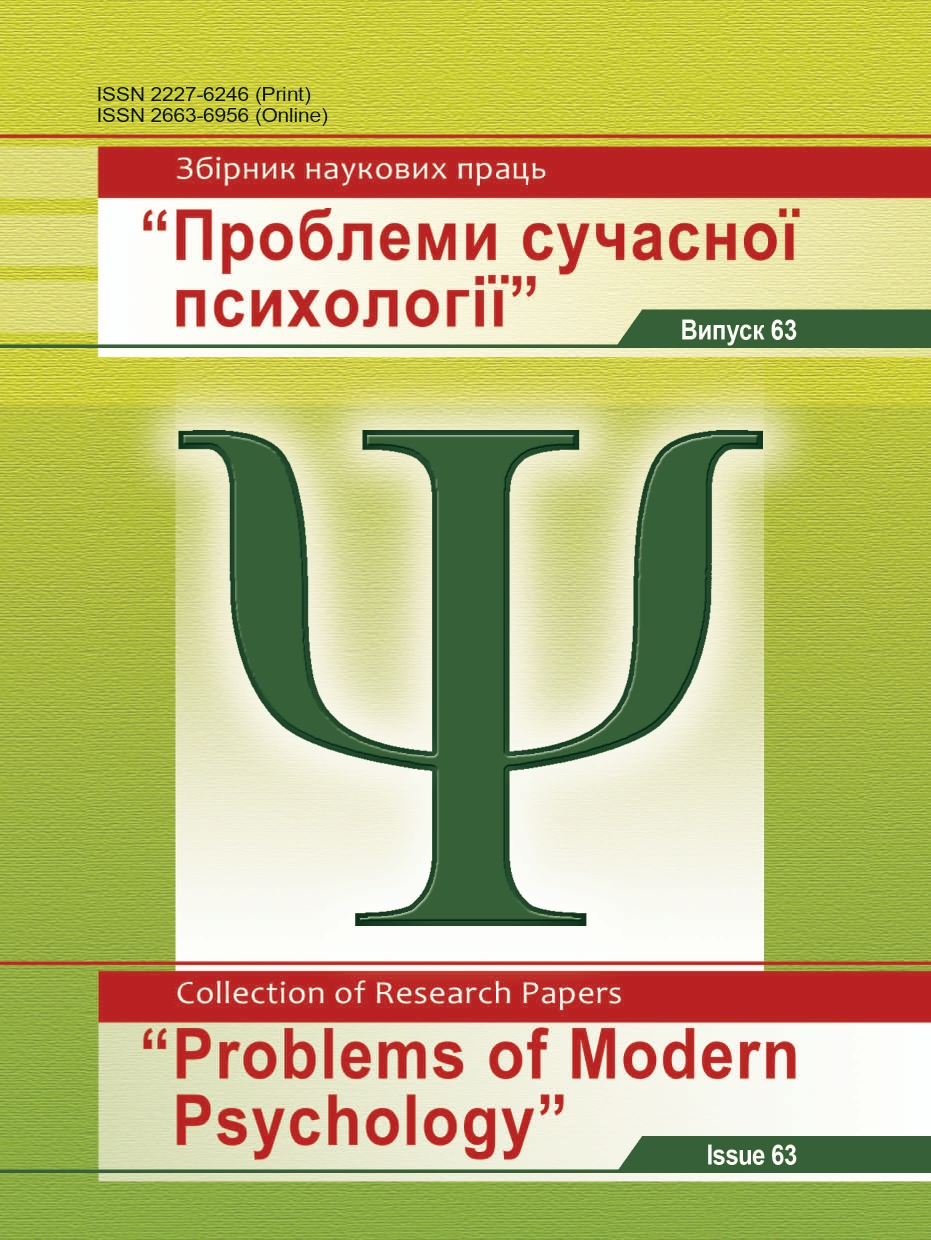Psychological Functions of Socio-Cultural Competence
DOI:
https://doi.org/10.32626/2227-6246.2024-63.219-241Keywords:
socio-cultural competence, a cultural function, to create crosscultural competence, peculiarities of different cultures, personal cultural identity, multi-cultural dialogues, bilingual competenceAbstract
The aim of our research is to show psychological functions of socio-cultural competence; to present cultural context, which influences the development of socio-cultural competence of students.
Methods of the research. The following theoretical methods of the research were used to solve the tasks formulated in the article: a categorical method, structural and functional methods, the methods of the analysis, systematization, modeling, generalization. The experimental method was the method of organizing empirical research.
The results of the research. We proposed socio-cultural approach in the process of education at high school at the English lessons. We proved that the main function of socio-cultural competence is a cultural function, which has the aim to create cross-cultural competence of the student almost at the same level as a native speaker. The main cultural function is a mean of building up a cultural-historical theme, and the native culture is not ignored. So, there is a parallel study of the cultural manifestations of native people and the people whose language is being studied. It was proved that the ways of developing of sociocultural competence to learning a foreign language has the aim to integrate language education interdisciplinary with the purpose to enrich bilingual competence of the student in order to fulfill the role of a subject of multi-cultural dialogues and to gain a role of a cultural mediator in the process of intercultural communication.
Conclusions. We’ve shown, that from the standpoint of Sociocultural Approach, socio-cultural competence is understood by us as the functionally determined communicative interaction of people who are the representatives of different cultural communities and belong to different geopolitical, continental, religious, regional, national, ethnic groups, as well as social subcultures. It was shown, that partners of communication, of course, can differ from each other in value-oriented worldview, lifestyle, models of speech and non-verbal process of communication. For productive multi-cultural communication, a personality with a high level of socio-cultural competence must be a mediator of cultures, by which we understand a student who has knowledge about the peculiarities of different cultures and the peculiarities of their interaction. Socio-cultural competence allows a person to go beyond the background of his/her native culture and acquire the qualities of a mediator of cultures, without losing his/her personal cultural identity.
Downloads
Published
How to Cite
Issue
Section
License
Copyright (c) 2024 Mykhalchuk Nataliia, Koval Iryna

This work is licensed under a Creative Commons Attribution-NonCommercial 4.0 International License.
Copyright
The Editorial Board has the full right to publish original scientific papers containing results of theoretical and experimental research works which are not currently subject to review for publication in other scientific editions. The Author shall transfer to the editorial board of the Collection the right to spread the electronic version of the paper, as well as the electronic version of the paper translated into English (for papers originally submitted in Ukrainian and Russian) by all kinds of electronic means (placement at the official website of the Collection, electronic databases, repositories etc).
The Author of an article reserves the right to use materials of the paper, without approval with the editorial board and the founders of this Collection: a) partially or fully, for educational purposes; b) for writing own dissertation papers; c) for preparation of abstracts, conference reports and presentations.
The Author of an article can place electronic copies of the paper (including the final electronic version downloaded from the official website of the Collection) at:
- personal web resources of all Authors (websites, webpages, blogs etc.);
- web resources of the institutions where the Authors are employed (including electronic institutional repositories);
- non-profit public access web resources (for example, arXiv.org).
But in all cases, it is obligatory to have a bibliographic reference to the paper, or a hyperlink to its electronic copy placed at the official website of this Collection.






